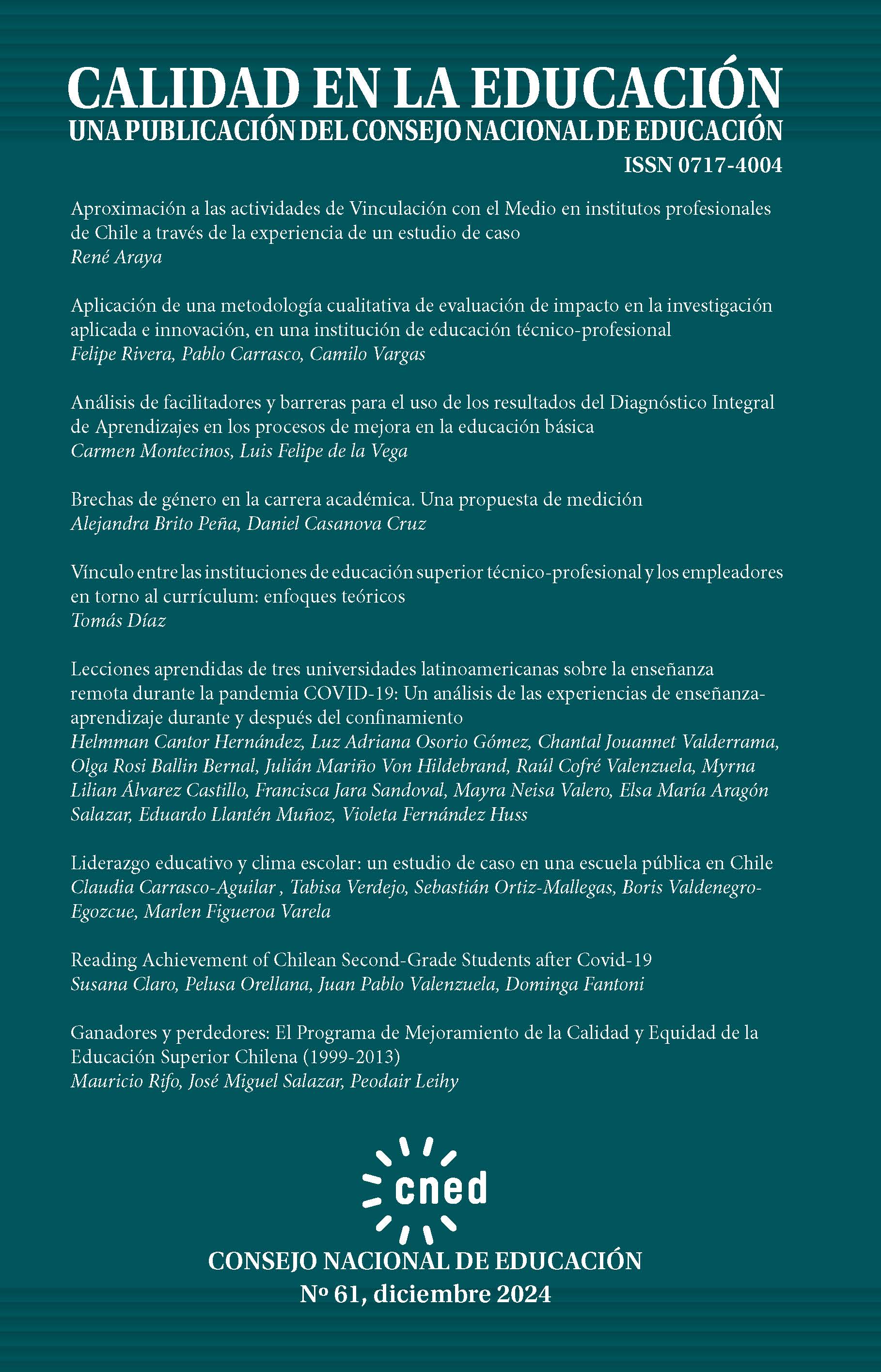An Approach to Community Engagement Activities in Chilean Professional Institutes: Insights from a Case Study Experience
DOI:
https://doi.org/10.31619/caledu.n61.1455Keywords:
community engagement, public engagement, third mission, bidirectional, professional technical higher educationAbstract
The aim of this study was to explore the type of activities designed and implemented by professional institutes in Chile, with a particular focus on the impact of the new transversal and bidirectional third mission approach on the extension of community engagement and its potential curricular integration. To this end, a case study was conducted on a private professional institute with a national presence, employing a mixed-methods approach that combined quantitative analysis of the activities carried out in 2023 with qualitative insights from interviews with a sample of key stakeholders involved in community engagement across eight branches of the institution. The findings indicate that while extension activities continue to play a vital role, this is potentially at the cost of diminished quality, with a more instrumental focus geared towards achieving public engagement management metrics. Furthermore,there is an increasing emphasis on activities directly aligned with curricular frameworks, driven by institutional policies that promote their integration, often to the detriment of broader social and community-oriented extension and development initiatives.
Downloads
Published
Issue
Section
License

This work is licensed under a Creative Commons Attribution 4.0 International License.
Authors retain their Copyright and only transfer a part of these to the journal, accepting the following conditions:
Authors keep their rights as authors and guarantee the right to the journal for the first publication of their work, which is simultaneously subject to the Creative Commons Attribution license allowing third parties to share the study accrediting the author and first publication in this journal.
Authors may adopt other non-exclusive license agreements for distribution of the version of the published work (e.g. inclusion in an institutional thematic file or publication in a monographic volume) accrediting initial publication in this journal.
Authors are allowed and recommended to share their work over the Internet (e.g. in institutional telematic files or their website) before and during the submission process, which may lead to interesting exchanges and increased citation of the published work. (See The effect of open access).

